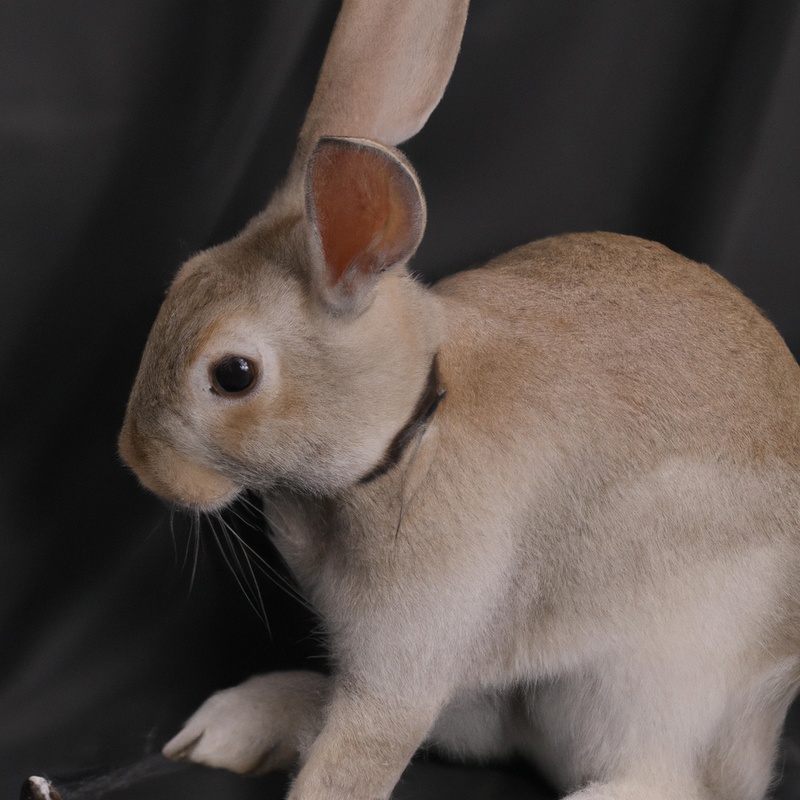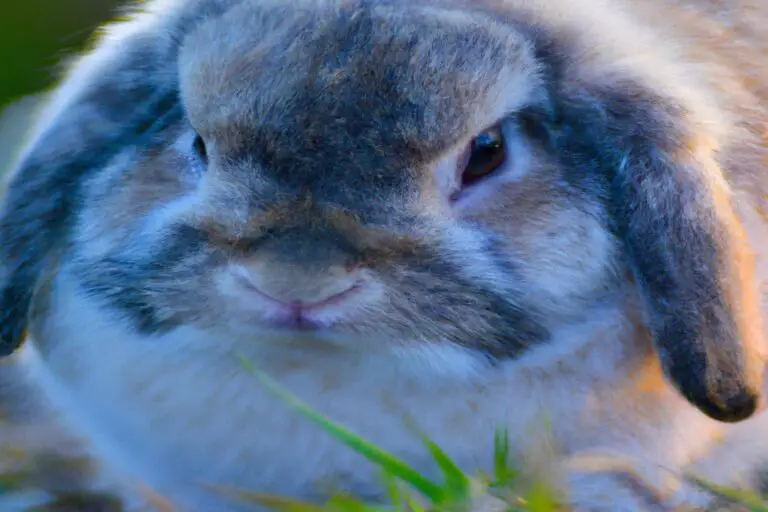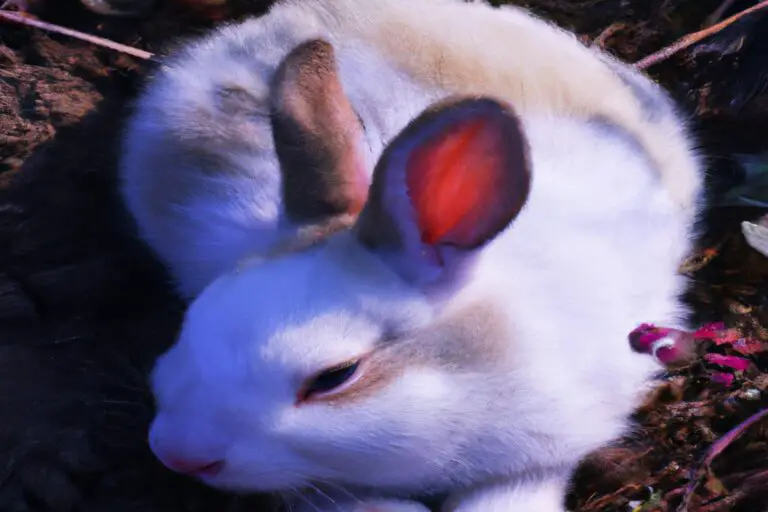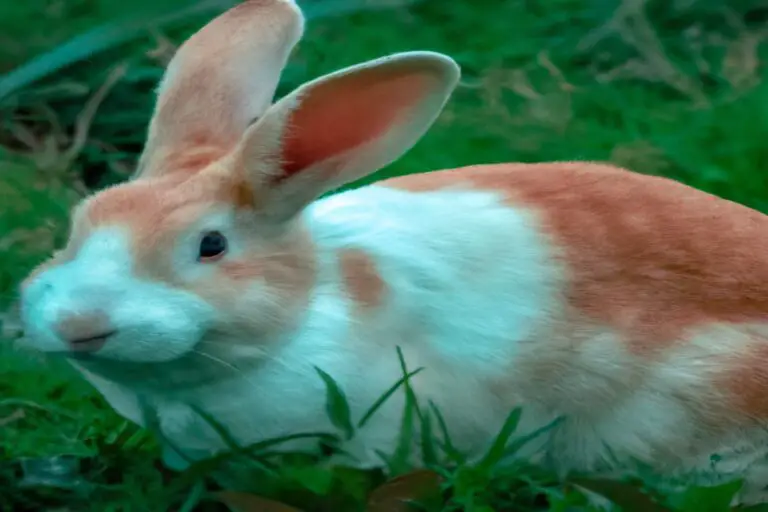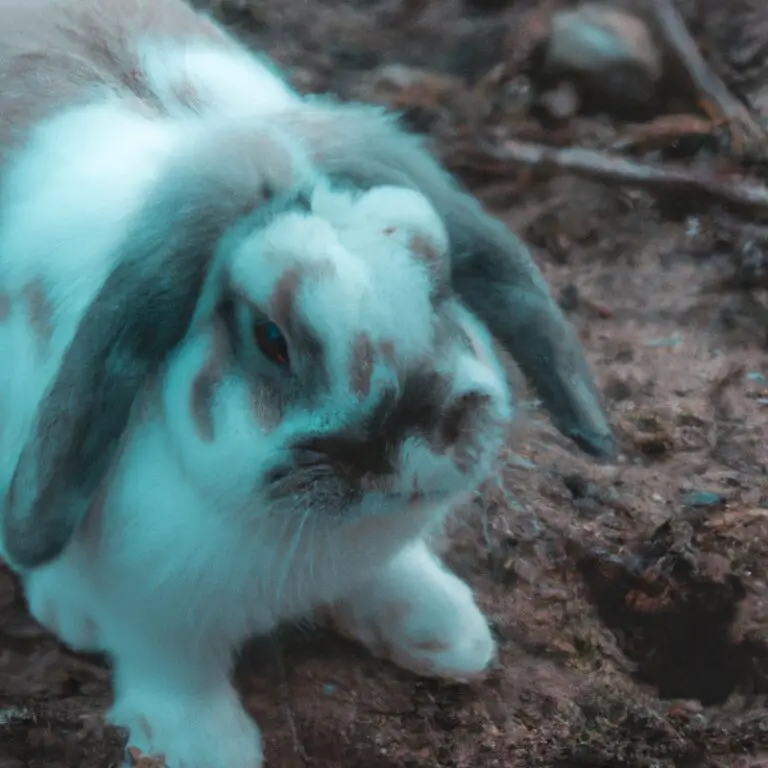Rabbit Nutrition 101: Feeding Your Furry Friend For Optimal Health
Key Takeaways:
- A balanced diet is crucial for a rabbit’s overall health and well-being.
- Hay should be the main component of a rabbit’s diet.
- Fresh vegetables should be included in a rabbit’s diet to provide additional nutrients.
- Avoid feeding rabbits foods that are high in sugar or carbohydrates.
Are you a proud bunny parent in search of the best ways to keep your furry friend healthy and happy?
Look no further! In this article, we’ll dive into the world of rabbit nutrition, exploring why proper nutrition is essential for your fluffy companion’s optimal health.
We’ll uncover the unique dietary needs of rabbits, the importance of a balanced diet, and how to meet these needs through hay, fresh vegetables, pellets, treats, and supplements.
Get ready to unlock the secrets to a happy and well-fed bunny!
| Food Type | Pros | Cons |
| Hay |
|
|
| Pellets |
|
|
| Fresh Vegetables |
|
|
| Fruits |
|
|
| Water |
|
|
Why Proper Nutrition is Essential for Rabbits
Proper nutrition is vital for the overall health and well-being of rabbits.
The Unique Dietary Needs of Rabbits
Rabbits have unique dietary needs that require special attention. Their diet should consist primarily of hay, which provides fiber for their digestive system.
Fresh vegetables, such as leafy greens, should be offered daily.
It’s important to avoid feeding them sugary fruits and treats, as this can lead to health problems. Pellets formulated specifically for rabbits can be given in moderation.
Constant access to fresh water is essential.
Monitoring your rabbit’s weight and adjusting their diet accordingly is crucial for their overall health.
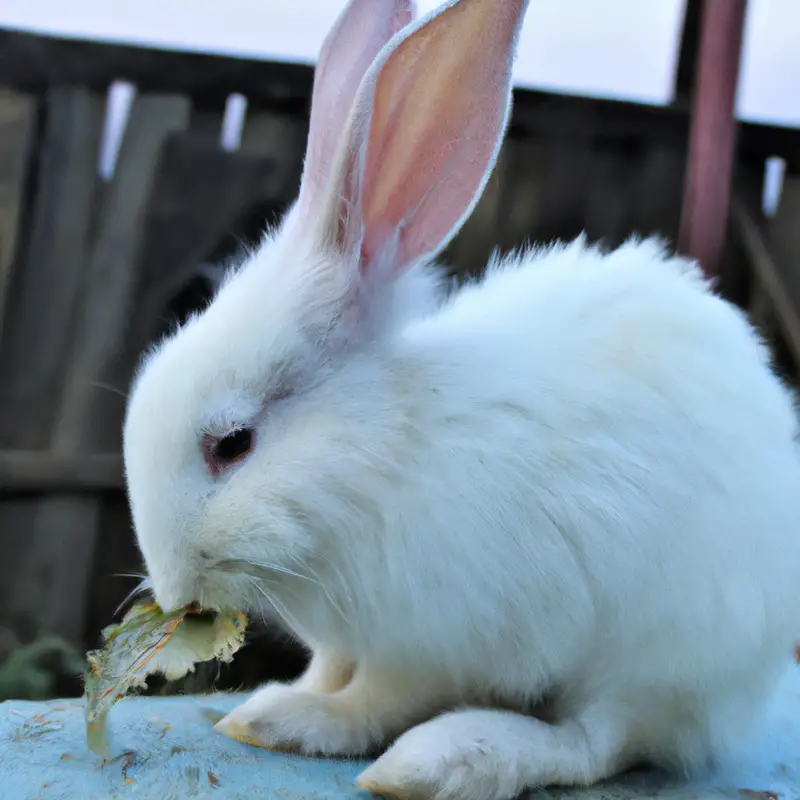
The Importance of a Balanced Diet for Rabbits
A balanced diet is crucial for the health of rabbits.
It provides essential nutrients and promotes overall well-being.
A proper diet should consist of fresh hay, high-quality pellets, fresh vegetables, and limited amounts of fruits.
Hay is a vital component as it aids in healthy digestion and helps wear down their teeth.
Pellets provide necessary vitamins and minerals.
Fresh vegetables offer variety and additional nutrients.
Remember to introduce new foods gradually and avoid foods that may be harmful to rabbits.
Understanding a Rabbit’s Digestive System
A rabbit’s digestive system is designed for a herbivorous diet, with a unique process of breaking down food.
Herbivorous Diet of Rabbits
Rabbits have a herbivorous diet, meaning they eat only plant-based foods.
Their digestive system is specially designed to process high-fiber foods like grasses and hay.
Feeding your rabbit a proper diet is essential for its overall health and well-being.
Make sure to provide a variety of fresh leafy greens, such as lettuce and kale, along with unlimited access to hay.
Carrots and fruits should be given in moderation, as they are high in sugar.
Avoid feeding your rabbit foods that are toxic to them, such as chocolate or avocado.
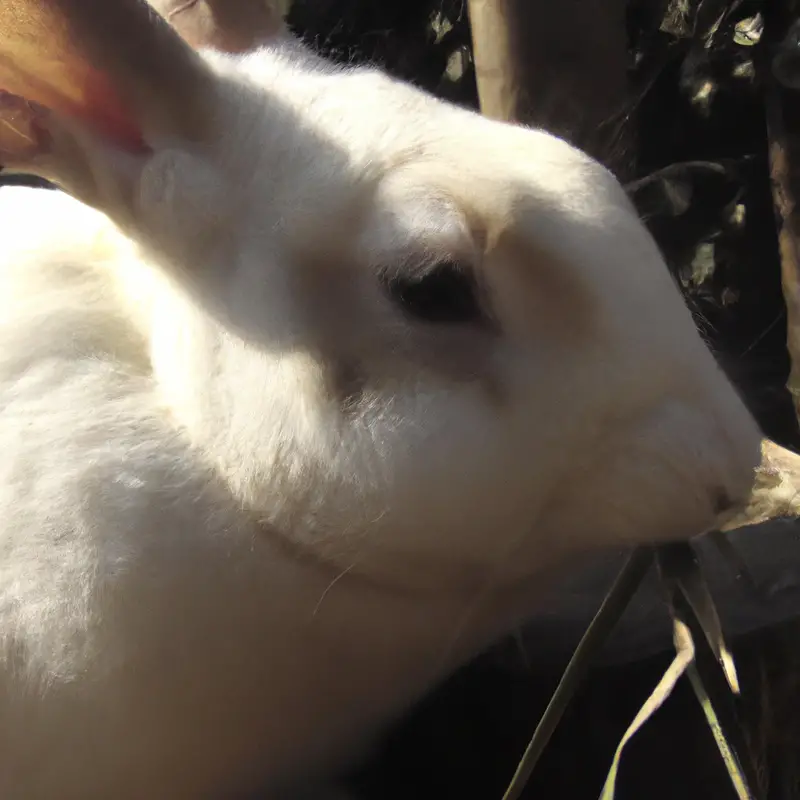
The Role of Fiber in a Rabbit’s Diet
Fiber plays a vital role in a rabbit’s diet. It helps maintain a healthy digestive system by promoting regular bowel movements and preventing issues like diarrhea or constipation.
Fiber also keeps your furry friend’s teeth in good condition by providing natural wear and preventing dental problems.
Good sources of fiber for rabbits include hay, fresh leafy greens, and certain vegetables. Make sure to provide a varied diet to meet your rabbit’s fiber needs and keep them happy and healthy.
Hay: The Foundation of a Healthy Rabbit Diet
Hay is essential for a healthy rabbit diet, providing the foundation for their overall well-being.
Types of Hay Suitable for Rabbits
There are several types of hay that are suitable for rabbits. Timothy hay is the most common and recommended for daily feeding.
It has a good balance of nutrients and is low in calories.
Orchard grass hay is another option, providing similar benefits to Timothy hay. If your rabbit has specific dietary needs or preferences, you can also try other types like oat hay, meadow hay, or alfalfa hay.
Just make sure to introduce new hay gradually and monitor your rabbit’s reaction.
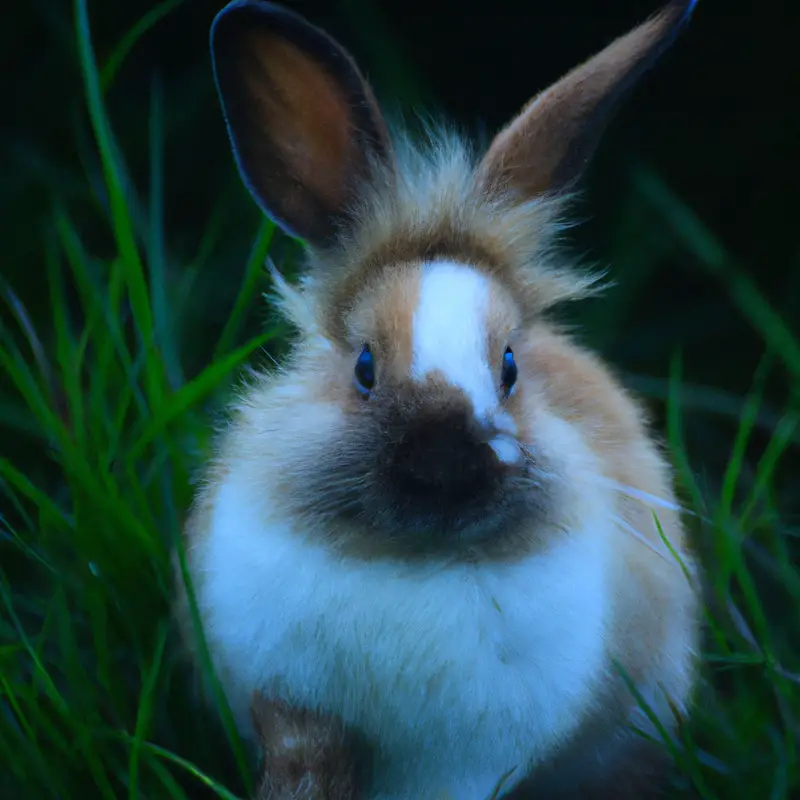
How to Choose High-Quality Hay for Your Rabbit
When selecting high-quality hay for your rabbit, there are a few important factors to consider. First, look for fresh, green hay that is free from dust, mold, or other contaminants.
It should have a pleasant, grassy smell.
Secondly, opt for hay that is made from a variety of grasses and hays, such as timothy, orchard grass, or meadow grass. This will provide your rabbit with a balanced diet.
Finally, check for hay that has long strands, as this promotes dental health and encourages natural chewing behavior.
Fresh Vegetables: Adding Nutritional Variety to Your Rabbit’s Diet
Adding fresh vegetables to your rabbit’s diet is essential for providing nutritional variety and promoting optimal health. To ensure safety, introduce new vegetables gradually and follow best practices.
Safe Vegetables for Rabbits
Rabbits can enjoy a variety of safe vegetables that provide essential nutrients.
Some safe options include carrots, bell peppers, broccoli, spinach, and kale.
These vegetables can be added to your rabbit’s regular diet to offer nutritional variety.
Remember to introduce new vegetables gradually and monitor your rabbit’s digestion.
Always wash the vegetables thoroughly and remove any pesticides.
Providing a balanced diet that includes safe vegetables can help keep your furry friend healthy and happy.
Best Practices for Introducing New Vegetables
When introducing new vegetables to your rabbit’s diet, it’s important to follow a few best practices. Start by offering small amounts of one vegetable at a time, gradually increasing the portion size over a few weeks.
This allows your rabbit’s digestive system to adjust.
Additionally, make sure to introduce a variety of vegetables to provide a balanced diet. Monitor your rabbit for any adverse reactions and consult with a veterinarian if needed.
Remember to always wash vegetables thoroughly and remove any pesticides or harmful parts before feeding them to your furry friend.
Pellets: Supplementing Your Rabbit’s Diet
When it comes to supplementing your rabbit’s diet, pellets play an important role.
Let’s dive into the types of pellets and proper portion sizes to ensure optimal nutrition for your furry friend.
Types of Rabbit Pellets
Rabbit pellets come in different types to meet the specific nutritional needs of your furry friend.
Some common options include timothy hay-based pellets, alfalfa-based pellets, and specialty pellets for specific health conditions.
Timothy hay-based pellets are ideal for adult rabbits, as they have lower calcium and protein content.
Alfalfa-based pellets are suitable for young rabbits and pregnant or nursing rabbits due to their higher calcium and protein levels.
Specialty pellets cater to specific health concerns like weight management or dental health.
Make sure to choose pellets that match your rabbit’s age and requirements.
Proper Portion Sizes and Feeding Guidelines
Proper portion sizes and feeding guidelines are essential for keeping your rabbit healthy.
It’s important to provide them with the right amount of food to prevent obesity and other health issues.
A general guideline is to give your rabbit about 1/4 to 1/2 cup of pellets per day, depending on their size.
Along with pellets, make sure to offer an unlimited supply of fresh hay and a variety of fresh vegetables as part of their balanced diet.
Consult with a veterinarian for specific recommendations based on your rabbit’s individual needs.
Treats and Snacks: Moderation is Key
When it comes to treats and snacks for your rabbit, moderation is key.
Healthy Treat Options for Rabbits
Healthy Treat Options for Rabbits:
- Fresh Vegetables: Offer a variety of leafy greens like kale, lettuce, and spinach. Don’t forget to introduce new veggies gradually to avoid digestive issues.
- Fruits in Moderation: While rabbits love fruits, they should be given sparingly due to their high sugar content. Safe options include small portions of apples, berries, and melons.
- Hay-Based Treats: Look for treats that are primarily made from hay, such as Timothy hay cubes or biscuits. These treats provide an excellent source of fiber.
- Herbs: Parsley, cilantro, and dill are tasty and healthy treats for rabbits. Just make sure to introduce them slowly and in small amounts.
- Homemade Treats: Whip up some homemade treats using rabbit-safe ingredients like oats, mashed banana, and grated carrots. Avoid adding any harmful additives or sweeteners.
Remember, treats should only make up a small portion of your rabbit’s diet, and always consult with your veterinarian before introducing new treats to your furry friend.
How to Safely Incorporate Treats into a Rabbit’s Diet
To safely incorporate treats into a rabbit’s diet, it’s important to consider a few guidelines.
First, choose treats that are specifically made for rabbits and avoid giving them human food.
Second, limit the amount of treats given to prevent overfeeding and weight gain.
Third, introduce new treats gradually to avoid digestive upset.
Lastly, always make sure to provide plenty of fresh hay and water to promote a balanced diet.
Water: The Lifeline for Your Rabbit
Water is essential for the health of your rabbit, providing hydration and supporting key bodily functions.
Providing Fresh and Clean Water
Fresh and clean water is essential for your rabbit’s health.
It is important to provide a constant supply of water for your furry friend.
Make sure to regularly change and clean their water bowl or bottle to prevent bacteria growth.
Avoid using tap water that has been treated with chemicals like chlorine, as it can be harmful to rabbits.
Provide filtered or bottled water instead.
Remember, access to clean water is vital for your rabbit’s hydration and overall well-being.
Water Bottle vs. Water Bowl: Which is Best?
When it comes to choosing between a water bottle and a water bowl for your rabbit, it ultimately depends on your rabbit’s preferences and needs. Some rabbits prefer drinking from a water bottle, while others prefer a water bowl.
Both options can be suitable as long as you ensure that the water is fresh, clean, and easily accessible for your furry friend.
Consider your rabbit’s behavior and choose the option that works best for them.
Supplements: Enhancing Your Rabbit’s Nutrition
Supplements can play a role in improving your rabbit’s nutrition for optimal health. Consult with a veterinarian for personalized recommendations.
Understanding the Role of Supplements for Rabbits
Supplements can play a beneficial role in a rabbit’s diet. They can provide additional nutrients and support overall health.
However, it’s important to remember that supplements should not be used as a replacement for a balanced and nutritious diet.
Always consult with a veterinarian before introducing any supplements to ensure they are safe and appropriate for your rabbit.
Consultation with a Veterinarian for Supplement Recommendations
For the best supplement recommendations for your rabbit, it’s important to consult with a veterinarian.
They have the knowledge and expertise to assess your rabbit’s specific needs and make tailored recommendations.
Your vet will consider factors such as your rabbit’s age, health, and diet to determine which supplements are necessary and in what dosage.
By seeking professional advice, you can ensure that you’re providing your furry friend with the right supplements for optimal health and well-being.
Common Dietary Mistakes to Avoid
Avoid overfeeding and obesity by monitoring portion sizes and providing a balanced diet for your rabbit.
Overfeeding and Obesity in Rabbits
Overfeeding and obesity can be a significant issue for rabbits. It’s important to understand that rabbits have specific dietary needs, and overfeeding can lead to weight gain and related health problems.
To prevent overfeeding, it’s crucial to provide the right portion sizes and a balanced diet of hay, fresh vegetables, and high-quality pellets.
Regular exercise is also important to help prevent obesity in rabbits. Monitoring your rabbit’s weight and adjusting their diet accordingly can help keep them healthy and at a proper weight.
Feeding High Sugar and High-Fat Foods
Feeding high sugar and high-fat foods to rabbits can have negative effects on their health. These types of foods can lead to obesity, dental problems, and digestive issues.
It’s important to prioritize a diet that consists of fresh hay, leafy greens, and a limited amount of pellets.
Treats should be given sparingly and should be low in sugar and fat. Additionally, always provide fresh water for your furry friend.
Stick to a balanced and nutritious diet to keep your rabbit happy and healthy.
Feeding Schedule and Routine for Rabbits
Establish a regular feeding schedule for your rabbit to promote consistency and optimal health.
Establishing a Regular Feeding Schedule
To establish a regular feeding schedule for your rabbit, consistency is key. Feed your furry friend at the same time each day to maintain a routine.
Provide fresh hay and water throughout the day, and offer a measured amount of pellets and vegetables once or twice a day.
Avoid overfeeding or suddenly changing their diet, as it can upset their delicate digestive system. Keep track of their appetite and adjust the portion sizes accordingly.
With a regular feeding schedule, your rabbit will stay healthy and happy!
Creating a Calm and Safe Feeding Environment
Creating a calm and safe feeding environment for your rabbit is essential for their well-being.
Here are a few tips to achieve this:
- Choose a quiet area: Find a peaceful spot in your home where your rabbit won’t be disturbed by loud noises or excessive activity.
- Use a stable feeding area: Provide a secure and stable feeding station for your rabbit, like a feeding bowl or a hay rack. This will prevent spills and create a sense of safety for your bunny.
- Avoid overcrowding: If you have multiple rabbits, ensure that each rabbit has enough space to eat without feeling crowded or anxious.
- Remove potential hazards: Keep any dangerous objects or toxic plants away from the feeding area to prevent accidents or ingestion of harmful substances.
- Stick to a routine: Establish a consistent feeding schedule so that your rabbit knows when to expect food, promoting a calm and predictable environment.
Remember, creating a calm and safe feeding environment is just one aspect of providing optimal care for your furry friend.
Frequently Asked Questions (FAQs)
What foods are toxic to rabbits?
Some foods that are toxic to rabbits include chocolate, caffeine, alcohol, onions, garlic, and avocado.
High-sugar and high-fat foods should also be avoided.
Plants such as lilies, daffodils, and tulips can be harmful if ingested.
Always consult with a veterinarian before introducing new foods into your rabbit’s diet to ensure their safety and well-being.
Can I feed my rabbit human food?
Yes, you can feed your rabbit some human food, but in moderation. Certain fruits and vegetables like apples, carrots, and leafy greens are safe.
Avoid feeding them foods that are high in sugar, salt, or artificial additives.
Also, never give your rabbit chocolate, avocado, or any toxic foods. Always introduce new foods slowly and observe for any adverse reactions.
Remember, a rabbit’s diet should primarily consist of hay, fresh water, and specially formulated pellets to ensure their optimal health.
How often should I change my rabbit’s diet?
You should avoid making sudden changes to your rabbit’s diet. Instead, introduce new foods gradually over a period of 7-10 days.
This allows their digestive system to adjust and prevents any potential gastrointestinal upset.
Once your rabbit is accustomed to the new diet, you can maintain it for a longer period, but always ensure they have a balanced diet with a variety of fresh hay, vegetables, and a small amount of pellets. Regularly monitor your rabbit’s health and consult with a veterinarian for any specific dietary recommendations.
Should I feed my rabbit treats every day?
Feeding your rabbit treats every day is not recommended.
While treats can be a great way to bond with your furry friend, they should be given in moderation.
Rabbits have sensitive digestive systems and too many treats can lead to obesity, dental problems, and digestive issues.
Instead, focus on providing a balanced diet of fresh hay, vegetables, and a small amount of pellets to keep your rabbit healthy and happy.
Final Verdict
Proper nutrition is essential for the overall health and well-being of rabbits.
Understanding their unique dietary needs, such as a herbivorous diet and the role of fiber, is crucial in maintaining a balanced and healthy diet.
Hay should be the foundation of their diet, supplemented with fresh vegetables, pellets, treats (in moderation), and clean water.
Consulting a veterinarian for supplement recommendations can further enhance their nutrition.
It’s important to avoid common dietary mistakes and establish a feeding schedule and routine to ensure optimal health for your furry friend.
By following these guidelines, you can ensure that your rabbit thrives and enjoys a long and healthy life.

